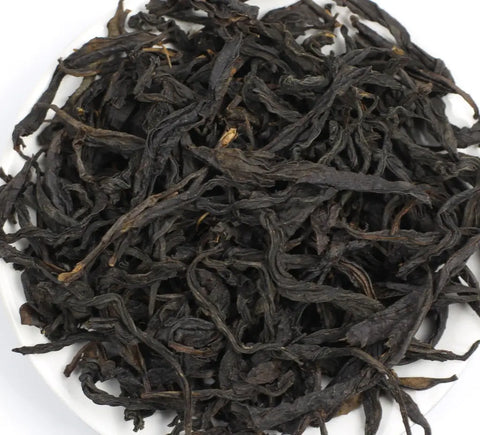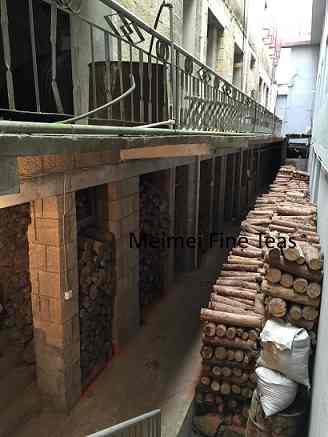
What is Lapsang Souchong black tea?
There’s a good chance that you’ve never had true Lapsang tea. (If you have, count yourself among the blessed!)
Lapsang tea is distinctive, and anyone who has ever tried it has very little difficulty remembering it. We often associate it with the smell of a campfire, due in large part to the fact that the leaves have been smoked. However, unfortunately, there are a lot of Lapsang tea imposters and inferior Lapsang in the market, and so even if one has tried it, one may not have had a quality representation of what this tea really has to offer.
If you currently own any Lapsang tea, I challenge you to inspect it right now. Real Lapsang tea should look and smell nothing like another common and popular smoked tea, “Russian Caravan.” What do your leaves look like? Are they small, brittle, and broken? Are they blackened like tar? Can you smell anything other than a smoky fragrance? Can you describe the smoky scent? Does it smell like ash?


True Lapsang tea should present you with the opposite characteristics. The leaves of this black tea are twisted and mostly intact. It should has the signature of pinewood smokiness and longan fruit notes that accents a sweet finish. You may even find notes of caramel, chocolate, and even deep hunter green tones coming through.
Likewise, the smoky fragrance that accompanies this tea should not be overpowering. Lapsang tea should have a pleasant, somewhat subtle smokiness to it. At the hands of a master, the tea leaves are gently smoked over pinewood, which lends its comforting aroma.
Because true Lapsang tea leaves are not subjected to excessive and inferior smoking methods, the tea leaves still retain their own flavor, imparting floral and fruity notes that perfectly complement the pinewood scent.
One telltale sign of an inferior Lapsang tea is its source of origin. Our Lapsang Souchong is sourced directly from the birthplace of this amazing tea, Tong Mu Guan Village near the Wuyi Mountains! Not only is it carefully processed according to the traditional methods, itself a rare occurrence in today’s “modern” world, but the pinewood used to smoke the tea is farmed from the Wuyi Mountains as well!
We invite you to try our Lapsang tea, and we can assure you that you will not be disappointed! This is simply an excellent tea for the autumn and winter seasons. Even if you prefer to prepare your tea in more of a British Style, with milk and sugar, you will find that Lapsang tea is the ultimate comfort tea especially for the cold and raining days!



Leave a comment